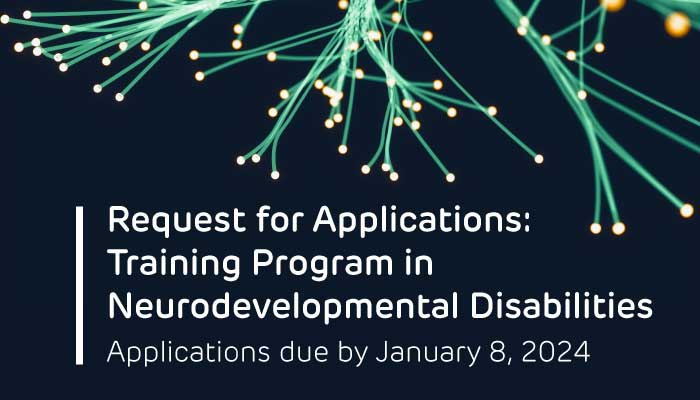HOW CAN WE HELP YOU? Call 1-800-TRY-CHOP
Training Program in Neurodevelopmental Disabilities
The Training Program in Neurodevelopmental Disabilities was established in 1998 and has been continuously supported by the National Institute of Neurological Disorders and Stroke. An executive committee selects trainees from post-doctoral fellows (MDs, PhDs, and MD/PhDs) who apply for the program, and members of minority groups that are underrepresented in science are especially encouraged to submit applications. Individuals supported by the program pursue full-time research training in basic, translational, and/or clinical research in selected world-class laboratories at Children’s Hospital of Philadelphia and the University of Pennsylvania. This includes planning, executing, and publishing primary research.
The focus of the program is on understanding intellectual and developmental disabilities caused by chromosomal defects, inborn errors of metabolism (aminoacidurias, urea cycle defects, etc.), or hypoxia and trauma (perinatal insult, traumatic brain injury, etc.). Experimental training is complemented with an educational program of selected didactic courses and an individualized clinical practicum. In addition, trainees interact with internationally renowned scientists who come to present their research at lectures sponsored by the Intellectual and Developmental Disabilities Research Center.
In order to ensure the selected trainees take full advantage of the rich opportunities that the program offers, trainees are carefully supervised. Their progress is monitored with a series of obligatory oral presentations and regular written reports from both trainees and their mentors. Individuals who complete the program are expected to become future leaders in discovering causes and developing treatments for children affected by neurodevelopmental disabilities such as by assuming positions at major medical schools, pharmaceutical companies, or by pursuing related careers.

Research Project Highlights:
Current trainees in the Training Program in Neurodevelopmental Disabilities have the following research interests:
- The neural substrates underlying resilience and habituation to stress
- Developing measures of motor control based on wearable inertial measurement unit technology to support phenotyping, diagnosis, and treatment monitoring of autism spectrum disorders
- Astrocytic mitochondria in focal ischemic stroke and neural repair.
Other research topics include mitochondrial disease, multiple sclerosis, neuro-oncological conditions, post-traumatic stress disorder, schizophrenia, spinal muscular atrophy, stroke, traumatic brain injury, and Trisomy 21, Down syndrome.

